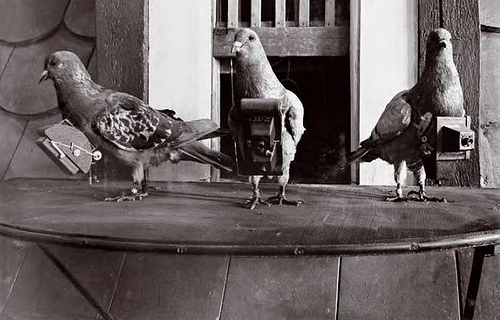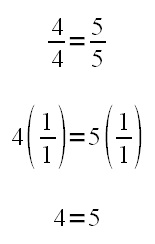
In 1903, German apothecary Julius Neubronner combined his two hobbies, pigeon fancying and amateur photography, into an innovative new undertaking. He fit a 75-gram camera to a pigeon’s breast and released it 60 miles from its cote. The bird flew home along a predictable route, and a pneumatic mechanism snapped an aerial picture.
A stunned German patent office rejected Neubronner’s first application as impossible, but by 1909 his photos were adorning postcards and winning prizes at the Paris airshow. The image below, of the Schlosshotel Kronberg, made a sensation because the photographer’s wingtips are visible at its edges.



